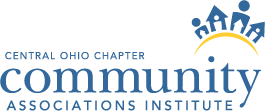
June 5, 2023 – In response to the Surfside tragedy, the Community Associations Institute (CAI) compiled working groups to discuss public policy solutions aimed at keeping communities and their buildings safe. Following the development of public policy initiatives, CAI assembled a variety of industry experts to revise its Reserve Study Standards, accounting for the critical nature of building safety. Revised by a comprehensive task force of fourteen industry experts, including reserve specialists, association managers, board members involved in legislative committees, an attorney, and an accountant, these new revisions encompass three main areas.
- Disclosing long-lived assets in reserve study reports – Though long-lived assets such as foundations and electrical systems may not need funding or maintenance within the 30-year scope of the reserve study (RS), they should be disclosed to your RS provider and included in the report to avoid future surprises that could lead to deferred maintenance. Your provider should provide useful life and cost information for these items even if they are not currently being funded for.
- Regular preventative maintenance – During RS kickoff meetings, RS providers should ask and associations should disclose if they are or are not regularly maintaining components in their community, long-lived or otherwise. If a component is not being regularly maintained, it is unlikely that it will obtain its full useful life. Your provider will determine the appropriate estimated remaining useful life and create a funding plan that prepares for its replacement, which is especially important when the useful life has been shortened as a result of deferred or reactive maintenance.
- Inclusion of inspections as a reserve expense – Primarily applicable to mid-rise and high-rise buildings, periodic structural engineering inspections should be included in the RS as a reserve expenditure when applicable. This is to ensure funding is available to maintain current and long-term building integrity and safety. Inclusion of any additional testing and inspections (pipe inspections, electric thermoscans, pond bathymetric surveys, etc.) should also be considered.
The task force, compiled in March 2022 met regularly to review and revise CAI’s reserve study standards. Addressing condo safety and building integrity, the group adjusted the standards to enhance and encourage best practices to keep buildings sound and communities safe.

